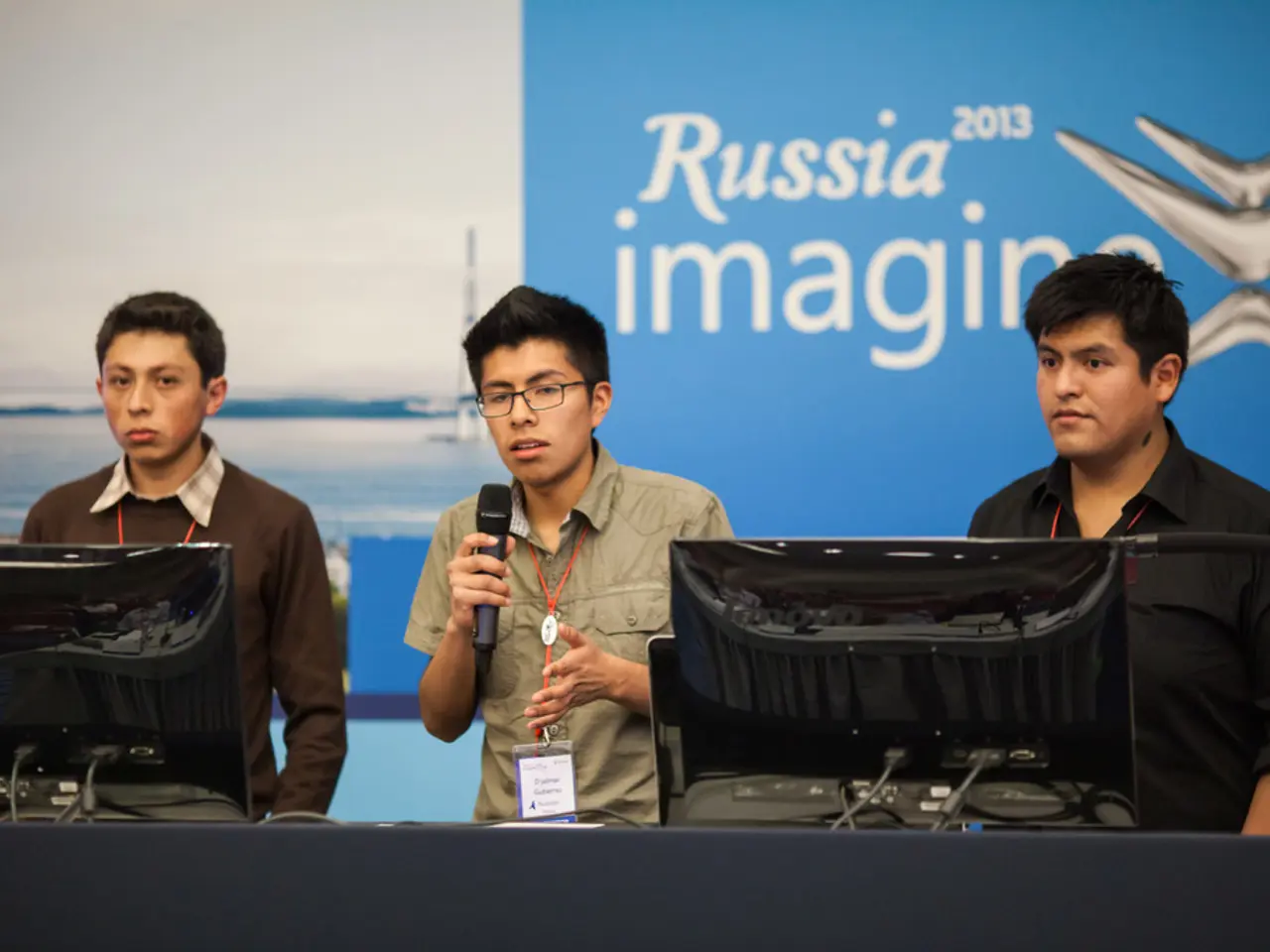Title: U.S. Pressure on Brazil's Digital Sovereignty: A Geopolitical Contest
Trump Administration's Aggressive Tariff Strategy Against Brazil Aims to Deter Sovereign Action Against Tech Giants
The United States has stepped up pressure on Brazil's digital policies, with the Trump administration voicing concerns over Brazil's increasing digital autonomy. This campaign, which began during the Trump era, is a strategic response to Brazil's legal framework for platform governance and digital payment systems that challenge U.S. tech dominance.
The Network for Digital Sovereignty, a Brazilian organisation, recently sent a letter to President Lula advocating for the creation of a National Plan for Digital Sovereignty. This move comes in response to the U.S. pressure.
The Computer & Communications Industry Association (CCIA), representing tech companies, has criticised an AI bill currently under consideration in Brazil and asked the US government to monitor the situation. The CCIA is concerned that the rules associated with Brazil's digital public infrastructure plans might require US companies to partner with or purchase from domestic companies.
The U.S. Trade Representative has opened a formal investigation on August 1st, which includes digital trade, creating pressure on Brazil to weaken enforcement of rules against US tech companies. This investigation follows allegations from tech leaders like Elon Musk that the Brazilian Supreme Court has issued hundreds of secret and unlawful censorship orders to US social media platforms.
Brazil's digital sovereignty push also includes its Pix digital payment system, a government-backed alternative to U.S.-based fintech options like WhatsApp Pay. This shift towards digital sovereignty is seen by the U.S. as a stepping stone to eroding its technological influence in the region.
The conflict highlights critical sovereignty issues. Brazil insists that foreign tech companies operating within its borders must comply with its laws and judicial rulings. For example, Brazil's Supreme Federal Court ordered the blocking of the U.S.-based platform Rumble for failing to comply with legal orders, a move opposed by Rumble on First Amendment grounds in U.S. courts.
Politically, the tariff and U.S. pressure have enhanced domestic support for President Lula da Silva, who frames the dispute as a fight for Brazil’s dignity and sovereignty against external blackmail. The pressure from the Trump administration has implications for Brazilian presidential politics, with an upcoming election in 2026.
In response to the pressure campaign, more than 100 organisations and collectives created the Legal Internet Campaign to promote regulations and policies that guarantee the human and digital rights of individuals and communities and sovereign initiatives. The Rights on the Net Coalition has been campaigning for the regulation of platforms and Artificial Intelligence systems in Brazil, among other issues, and called for the passage of new liability rules.
The pressure campaign has also sparked a wave of protests in Brazil. A mass protest on July 10th brought more than 15,000 people to the streets in defense of Brazil's sovereignty. President Lula of Brazil responded to the pressure campaign, stating that "Brazil is a sovereign country with independent institutions that will not accept being taken for granted by anyone." A letter in defense of national sovereignty was signed by more than 200 academic, professional, civil society, and social movement organisations.
- The pressure from the U.S. on Brazil's digital sovereignty has been met with responses from various Brazilian organizations, such as the Legal Internet Campaign, which advocates for policies and regulations that guarantee digital rights.
- The CCIA, a tech industry association, has expressed concerns over a potential AI bill in Brazil, fearing rules that might require U.S. companies to partner with domestic counterparts, as seen in the case of Brazil's Pix digital payment system.
- The conflict over digital sovereignty has also extended to casino games and gambling, with some advocating for regulations to prevent manipulations and ensure fairness in games like poker.
- The U.S. pressure on Brazil's digital policies has implications for international politics, specifically in relation to European leagues and football, as Brazil may impose restrictions on streaming services to protect domestic interests.
- The debate over digital sovereignty has recently spilled into the realm of crime and justice, with concerns about privacy and data security, particularly in relation to casino-and-gambling activities.
- Amidst the high-stakes war-and-conflicts and general-news from other parts of the world, this geopolitical contest over digital sovereignty between the U.S. and Brazil serves as a timely reminder of the importance of policy-and-legislation in shaping the future of technology, gambling, and sports alike.




